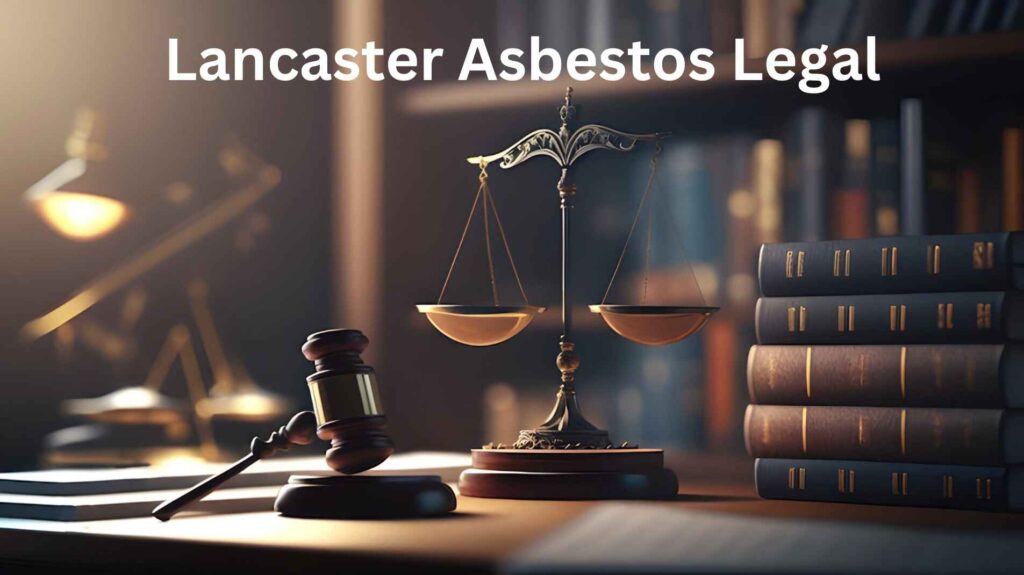Lancaster’s rich industrial past has left a complex legacy, one that sometimes lurks in the walls of our homes and workplaces. If you’re grappling with asbestos-related health issues or suspect exposure, you’re not alone.
Many Lancaster residents find themselves tangled in a web of legal questions, unsure of where to turn or what their rights might be. This guide aims to shed light on the murky waters of Lancaster asbestos legal questions, empowering you with the knowledge to protect yourself and your loved ones.
Understanding your legal rights when it comes to asbestos exposure is crucial. It’s not just about seeking compensation; it’s about holding responsible parties accountable and ensuring you have the resources to deal with potential health consequences.
As we move into the intricacies of asbestos law in Lancaster, remember that knowledge is power. By the end of this article, you’ll be better equipped to navigate the legal landscape and make informed decisions about your future.
What are Lancaster Asbestos Legal Questions?
What is asbestos, and why is it a concern in Lancaster?
Asbestos is a heat-resistant mineral used in building materials. It’s a concern in Lancaster because exposure to its fibers can cause severe health problems, including lung cancer.
What are the legal requirements for handling asbestos in Lancaster?
Handling asbestos in Lancaster is regulated by the Control of Asbestos Regulations 2012, requiring licensed professionals to follow strict safety and disposal rules.
What should I do if I discover asbestos in my Lancaster property?
If you discover asbestos, avoid disturbing it. Contact a licensed removal expert to handle it safely and notify local authorities.
What are the legal consequences of improper asbestos handling in Lancaster?
Improper handling can result in fines or imprisonment, as well as penalties for breaching the Control of Asbestos Regulations 2012.
How can I find a qualified asbestos lawyer in Lancaster?
You can find a qualified asbestos lawyer by searching legal directories, online reviews, or seeking recommendations, ensuring they specialize in asbestos cases.
What types of compensation can be claimed for asbestos-related diseases in Lancaster?
Compensation may include medical costs, lost wages, pain and suffering, and funeral expenses for asbestos-related illnesses.
Is there a time limit for making an asbestos claim in Lancaster?
Yes, the typical time limit is three years from diagnosis, but it’s best to consult a lawyer quickly to ensure deadlines are met.
Can tenants in Lancaster make asbestos claims against their landlords?
Yes, tenants can claim if they prove their landlord failed to properly manage asbestos, leading to exposure and health issues.
What evidence is needed to support an asbestos claim in Lancaster?
You’ll need medical records, proof of asbestos exposure, and related documents like work history or inspection reports.
Are there any legal aid options available for asbestos claims in Lancaster?
Some law firms offer “no win, no fee” arrangements, so legal aid may be available based on your case and financial situation.
Historical Use of Asbestos in Lancaster

Lancaster’s industrial boom in the early 20th century saw widespread use of asbestos in factories, shipyards, and construction. The material’s heat-resistant properties made it a go-to choice for insulation, fireproofing, and countless other applications.
Many of Lancaster’s iconic buildings, from old textile mills to historic homes, were constructed during this era of abundant asbestos use. The legacy of this historical use continues to impact Lancaster today. While new use of asbestos has been heavily regulated since the 1970s, many older structures still contain asbestos materials.
This presents ongoing challenges for renovation projects, demolitions, and even routine maintenance in older buildings. Understanding this history is crucial for identifying potential exposure risks and building a strong legal case if you’ve been affected by asbestos-related health conditions.
Overview of Asbestos-Related Health Conditions
Asbestos exposure can lead to a range of serious health conditions, with mesothelioma being one of the most severe. This aggressive cancer affects the lining of the lungs, chest, or abdomen and is almost exclusively caused by asbestos exposure. Symptoms often don’t appear until 20 to 50 years after exposure, making early detection challenging.
Asbestosis is another condition linked to asbestos exposure. It’s a chronic lung disease characterized by scarring of lung tissue, leading to breathing difficulties and increased risk of lung cancer. While less immediately life-threatening than mesothelioma, asbestosis can significantly impact quality of life and may progress over time.
Other asbestos-related diseases include lung cancer, pleural plaques, and pleural thickening. The long latency period of these conditions underscores the importance of understanding your legal rights, even if you’re not currently experiencing symptoms.
Legal Framework for Asbestos Claims in Lancaster
The legal landscape for asbestos claims in Lancaster is shaped by a combination of federal, state, and local laws. At the federal level, the Environmental Protection Agency (EPA) and the Occupational Safety and Health Administration (OSHA) set standards for asbestos handling and exposure limits. These regulations form the backbone of many asbestos-related lawsuits.
Pennsylvania state law adds another layer to the legal framework. The state has its own set of regulations governing asbestos removal and disposal, as well as specific statutes of limitations for filing asbestos-related claims.
In Lancaster County, local ordinances may further refine these rules, particularly when it comes to asbestos in public buildings or during renovation projects. Navigating this multi-layered legal landscape can be challenging, which is why many victims seek the help of an experienced asbestos lawyer in Lancaster.
Key Regulations and Laws Affecting Asbestos Cases
The Clean Air Act of 1970 and its subsequent amendments play a crucial role in asbestos regulations. These federal laws classify asbestos as a hazardous air pollutant and set strict guidelines for its handling and removal.
OSHA regulations, meanwhile, focus on workplace safety, setting permissible exposure limits and mandating protective equipment for workers who may come into contact with asbestos.
In Pennsylvania, the Asbestos Occupations Accreditation and Certification Act adds another layer of protection. This law requires that anyone engaged in asbestos abatement work be properly trained and certified.
For Lancaster residents considering legal action, understanding these regulations is crucial. They often form the basis for establishing negligence in asbestos litigation, helping to build a strong case for compensation.
Identifying Potential Asbestos Exposure Sites in Lancaster
In Lancaster, potential asbestos exposure sites are numerous and varied. Older homes, particularly those built before the 1980s, often contain asbestos in insulation, floor tiles, and roofing materials. Industrial sites, including former textile mills and manufacturing plants, are also high-risk areas.
Even some public buildings, like schools and government offices, may harbor asbestos if they haven’t undergone proper abatement. Identifying these sites is crucial for both prevention and legal purposes.
If you’re renovating an older home or working in a building constructed before the 1980s, it’s wise to have an asbestos removal professional conduct an inspection.
For those already experiencing asbestos-related health conditions, documenting potential exposure sites can be vital for building a strong legal case. Remember, exposure isn’t always obvious – even seemingly innocuous materials like popcorn ceilings or old appliances can contain asbestos.
How to Document Asbestos Exposure for Legal Purposes
Documenting asbestos exposure is a critical step in pursuing legal action. Start by creating a detailed work history, noting any jobs or locations where you may have come into contact with asbestos. This could include construction work, industrial jobs, or even secondary exposure from a family member who worked with asbestos.
Gather any available records, such as employment documents or building permits, that can corroborate your presence at these sites. Medical records are another crucial piece of evidence.
If you’ve been diagnosed with an asbestos-related disease, ensure you have copies of all relevant medical reports, test results, and doctor’s notes. These documents can help establish a link between your exposure and your current health condition.
Don’t forget about witness statements – coworkers or family members who can attest to your exposure can provide valuable testimony. Remember, the more thorough your documentation, the stronger your case will be when you consult with an asbestos lawyer in Lancaster.
The Role of Asbestos Lawyers in Lancaster
Asbestos lawyers play a pivotal role in helping victims navigate the complex legal landscape of asbestos claims. These specialized attorneys have in-depth knowledge of asbestos regulations, case law, and the unique challenges posed by the long latency period of asbestos-related diseases.
They can help you understand your rights, evaluate the strength of your case, and guide you through the often lengthy legal process. A skilled asbestos lawyer in Lancaster will do more than just file paperwork.
They’ll investigate your exposure history, gather crucial evidence, and build a compelling case on your behalf. Many work on a contingency basis, meaning you don’t pay unless you win your case. This can be particularly helpful for those facing mounting medical bills.
When choosing a lawyer, look for someone with a track record of successful asbestos litigation in Lancaster and Pennsylvania. The Lancaster County Lawyer Referral Service can be a good starting point in your search for qualified legal representation.
Types of Legal Claims for Asbestos-Related Illnesses
When it comes to asbestos-related diseases, there are several types of legal claims you might pursue. Personal injury claims are common for individuals diagnosed with conditions like mesothelioma or asbestosis.
These claims seek compensation for medical expenses, lost wages, pain and suffering, and other damages related to your illness. If you’ve lost a loved one to an asbestos-related disease, you might consider a wrongful death claim, which can provide compensation for funeral expenses, lost financial support, and loss of companionship.
Another option is filing a claim with an asbestos trust fund. Many companies that manufactured or used asbestos products have established these funds to compensate victims. Trust fund claims can sometimes be resolved more quickly than lawsuits, but the compensation amounts may be lower.
Some victims may also be eligible for workers’ compensation if their exposure occurred on the job. An experienced asbestos lawyer in Lancaster can help you determine which type of claim is most appropriate for your situation and guide you through the filing process.
See Also: Springfield Mesothelioma Legal Question: Understanding Your Legal Rights
How to Choose the Right Asbestos Lawyer in Lancaster
Selecting the right asbestos lawyer is crucial for the success of your case. Look for an attorney with specific experience in asbestos litigation, particularly in Lancaster and Pennsylvania. They should be well-versed in local laws and have a track record of successful settlements or verdicts.
Don’t hesitate to ask about their experience with cases similar to yours – for instance, if you’re dealing with mesothelioma, you’ll want a lawyer who has handled mesothelioma cases before.
Consider the lawyer’s resources as well. Asbestos lawsuits can be complex and time-consuming, often requiring extensive research and expert testimony. A well-established firm is more likely to have the necessary resources to build a strong case.
During your initial consultation, pay attention to how the lawyer communicates. You want someone who can explain complex legal concepts in terms you understand and who makes you feel comfortable. The Lancaster Law Foundation or Legal Aid Lancaster PA may be able to provide referrals or assistance if you’re struggling to find representation.
Steps Involved in Filing an Asbestos Lawsuit
Filing an asbestos lawsuit involves several key steps. It typically begins with a free consultation with an asbestos lawyer in Lancaster. During this meeting, you’ll discuss your exposure history, medical condition, and potential legal options.
If the lawyer believes you have a viable case, they’ll begin the process of gathering evidence, which may include obtaining medical records, employment history, and expert opinions.
Once sufficient evidence is collected, your lawyer will file a complaint in the appropriate court. This document outlines your case against the defendant(s) – usually the companies responsible for your asbestos exposure. After filing, there’s a discovery phase where both sides exchange information.
Many asbestos cases settle out of court, but if a fair settlement can’t be reached, your case may go to trial. Throughout this process, your lawyer will guide you, explain your options, and advocate on your behalf. Remember, the Pennsylvania Case Search system can be a useful tool for tracking the progress of your case once it’s filed.
Possible Outcomes and Compensation in Asbestos Cases

The outcomes of asbestos cases can vary widely, depending on factors like the severity of your illness, the extent of your exposure, and the strength of your evidence. Compensation may cover medical expenses, lost wages, pain and suffering, and in some cases, punitive damages.
Settlements from asbestos trust funds can provide additional compensation, especially if the companies responsible for your exposure have gone bankrupt.
It’s important to note that compensation amounts can range from thousands to millions of dollars. While high-profile mesothelioma cases often make headlines with multi-million dollar verdicts, not all cases result in such large awards.
Your asbestos lawyer can give you a better idea of what to expect based on the specifics of your case. Remember, even if you’re offered a settlement, you have the right to negotiate or reject it if you feel it’s inadequate. Your lawyer can advise you on whether a settlement offer is fair given your circumstances.
Resources and Support for Asbestos Victims in Lancaster
Dealing with an asbestos-related illness can be overwhelming, but you’re not alone. Lancaster offers several resources to support asbestos victims and their families. The Lancaster Law Foundation provides legal assistance to those who can’t afford a private attorney.
Legal Aid Lancaster PA also offers free legal services to eligible individuals. These organizations can be invaluable if you’re struggling to navigate the legal system on your own. Beyond legal help, there are support groups and organizations dedicated to helping asbestos victims.
The Pennsylvania Mesothelioma Support Network, for instance, offers emotional support and practical advice for those dealing with mesothelioma. The PA Law Help website provides free legal information and resources on various topics, including asbestos-related issues.
Don’t forget about national organizations like the Mesothelioma Applied Research Foundation, which funds research and provides support services to patients and families. Remember, seeking support is not a sign of weakness – it’s a crucial step in managing your health and legal journey.
Future Trends in Asbestos Legal Issues and Advocacy
The landscape of asbestos litigation continues to evolve. Emerging scientific research is shedding new light on the health impacts of asbestos exposure, potentially opening up new avenues for legal claims.
There’s also growing awareness of the dangers of asbestos in older buildings, which could lead to stricter regulations on asbestos removal and disposal in Lancaster and beyond. Advocacy groups are pushing for more comprehensive asbestos regulations and better support for victims.
Some are calling for a complete ban on asbestos in the United States, which could have significant implications for future legal cases. As public awareness grows, we may see changes in how asbestos-related diseases are diagnosed and treated, potentially impacting legal proceedings.
Stay informed about these developments – they could affect your rights and options if you’re dealing with asbestos-related health issues.
Conclusion
Navigating the complexities of Lancaster asbestos legal questions can be daunting, but understanding your rights is the first step towards justice. Whether you’re dealing with an asbestos-related illness or concerned about potential exposure, remember that you have options.
From seeking medical care to exploring legal recourse, there are pathways to support and compensation. Don’t let the fear of a complex legal process deter you from seeking the help you deserve.
With the right guidance from an experienced asbestos lawyer in Lancaster, you can navigate this challenging terrain. Stay informed, document your experiences, and don’t hesitate to reach out for support. Your health and your rights matter – take the first step today in understanding and asserting those rights.
FAQs on Lancaster Asbestos Legal Question
How long do I have to file an asbestos claim in Lancaster?
In Pennsylvania, you generally have two years from the date of diagnosis of an asbestos-related disease to file a personal injury claim. For wrongful death claims, it’s two years from the date of death. However, these time limits can be complex in asbestos cases, so it’s best to consult with an asbestos lawyer as soon as possible.
Can I file a claim if the company responsible for my exposure no longer exists?
Yes, you may still have options. Many companies have set up asbestos trust funds to compensate victims even after bankruptcy. An experienced asbestos lawyer in Lancaster can help you identify potential sources of compensation, including these trust funds.
What if I’m not sure where I was exposed to asbestos?
Don’t worry if you’re unsure about the exact source of your exposure. An asbestos lawyer can help investigate your work history and living situations to identify potential exposure sites. They may also work with medical experts to establish a link between your condition and asbestos exposure.
How much does it cost to hire an asbestos lawyer in Lancaster?
Most asbestos lawyers work on a contingency fee basis. This means you don’t pay upfront – the lawyer only gets paid if you win your case, typically taking a percentage of your settlement or verdict. Be sure to discuss fee structures during your initial consultation.
Can family members file a claim on behalf of a deceased loved one?
Yes, in many cases, family members can file a wrongful death claim if a loved one has passed away due to an asbestos-related disease. These claims can help cover medical expenses, funeral costs, and provide compensation for loss of financial support and companionship.


